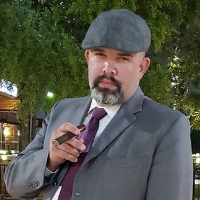Montague DUI-DWI Lawyer, Texas
Sponsored Law Firm
-
 x
x

Click For More Info:
-
Law Office of Robert R. Jones III
2411 Emancipation Ave, Suite 202, Houston, TX 77004» view mapCriminal Defense Expert Representation for Reasonable Rates
If you need representation, call me 24/7.
800-883-8760
Jason Van Dyke
Criminal, Juvenile Law, Expungement, DUI-DWI, White Collar Crime
Denton, TX Criminal Defense Attorney
Throughout a tenure exceeding sixteen years, Mr. Van Dyke has dedicated his legal prowess as the general counsel for factoring companies, commercial d... (more)
FREE CONSULTATION
CONTACTTracey L. Jennings
Estate Planning, DUI-DWI, Criminal, Business Organization
Status: In Good Standing Licensed: 35 Years
Sarah Roland
DUI-DWI, Federal Appellate Practice, Domestic Violence & Neglect, , Criminal
Status: In Good Standing
Michael G. Meyer
Lawsuit, Child Custody, Juvenile Law, DUI-DWI, Criminal
Status: In Good Standing Licensed: 30 Years
Sarah E. Roland
DUI-DWI, Federal Appellate Practice, Domestic Violence & Neglect, , Criminal
Status: In Good Standing Licensed: 18 Years
Joseph C. Boswell
Food & Drug Administration, Domestic Violence & Neglect, DUI-DWI, Criminal
Status: In Good Standing Licensed: 29 Years
Brent Hill
Domestic Violence & Neglect, Family Law, Divorce & Family Law, DUI-DWI, Criminal
Status: In Good Standing
 Robert Jones San Antonio, TX
Robert Jones San Antonio, TX AboutLaw Office of Robert R. Jones III
AboutLaw Office of Robert R. Jones III Practice AreasSpecializations
Practice AreasSpecializations

